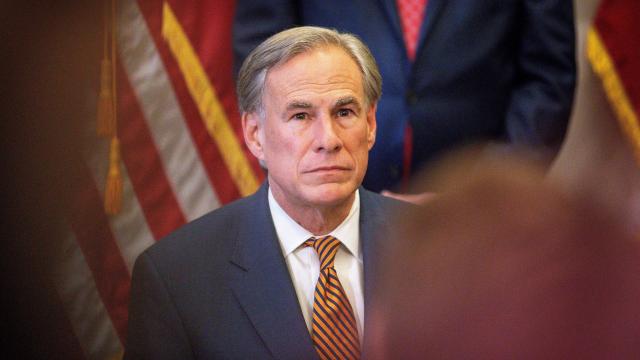Two major technology trade groups repping some of the biggest names in tech — including Facebook, Youtube, and Twitter — are suing the state of Texas over the state’s new law barring their platforms from cracking down on far-right content.
The Computer and Communications Industry Association (CCIA) and NetChoice co-filed the new suit, which you can read for yourself here. In a nutshell, both allege that the law, known as H.B. 20 or the ‘Freedom from Censorship Act,’ which Texas Gov. Greg Abbott signed earlier this month, will end up doing more harm than good. At a minimum, the lawsuit states, the law would kneecap a major platform’s ability to stomp out violent hate speech and misinformation, which the complaint says is a violation of companies’ First Amendment rights. Considering content moderation is kind of struggle for them already, you can imagine why a law like this would get under their skin.
“At a minimum, H.B. 20 would unconstitutionally require platforms like YouTube and Facebook to disseminate, for example, pro-Nazi speech, terrorist propaganda, foreign government disinformation, and medical misinformation,” the lawsuit reads. “In fact, legislators rejected amendments that would explicitly allow platforms to exclude vaccine misinformation, terrorist content, and Holocaust denial.”
It’s not very often that we’re inclined to agree with the think tanks and deep-pocketed trade groups directly undercutting most tech legislation efforts, but in this case, they have a point. Texas lawmakers were spurred to pass H.B. 20 by a wide margin following Donald Trump’s abrupt suspension from every major platform following the January 6 attack on the U.S. capitol. While Facebook and Twitter argued that the decision was based on the ex-president’s “severe violations” of their rules and the risk of “further incitement of violence” if he were allowed to remain, the Lone Star State saw things differently. They saw the move as censorship of conservatives, plain and simple — and that’s where H.B. 20 comes in.
The law, at its core, prohibits social platforms with more than 50 million users (like the ones behind this new suit) from barring users based on political viewpoint alone. These same platforms would need to create complaint systems where people could challenge a company’s decisions to remove their content — and if those people are Texas residents (including Texas lawmakers), H.B. 20 allows them to file suit against said companies if they believe they were wrongfully banned.
In addition to arguing that H.B. 20 violates companies’ First Amendment rights, the complaint further asserts that the law runs afoul of Section 230 of the Communications Decency Act. Passed in 1996, Section 230 is long considered the foundational law of the internet because of the liability protections it provides companies against having to fight lawsuits over most user-generated content, as well as the power it gives companies to moderate their platforms. In recent years, however, Section 230 has become a punching bag for politicians who don’t understand what the law actually does.
“Under Section 230(e)(3), state law is expressly preempted insofar as it purports to restrict good faith editorial discretion,” the suit reads. “Accordingly, those portions of H.B. 20 that expose platforms to liability for their good faith content moderation decisions are expressly preempted by 47 U.S.C. § 230(e)(3).”
H.B. 20 is arguably one of the dumbest tech laws in the U.S., and it’s not even original in how dumb it is. Back in May, Florida Gov. Ron DeSantis signed a suspiciously similar bill that was aimed at preventing major platforms from banning political candidates or anyone running for office, regardless of how vile their tweets or posts may be. These same trade groups sued Florida back then, the same way they’re suing Texas now. And they won. The federal judge overseeing the case compared DeSantis’s law to “an instance of burning the house to roast a pig,” which is a nice way of saying what a lot of us already knew: social media platforms inarguably have problems with content moderation, but censoring conservatives is far from one of them.
Will the same thing happen with the Texas law? It seems likely! As Matt Schruers, president of the Computer & Communications Industry Association, told reporters, forcing tech companies to unilaterally give “equal treatment to all viewpoints” will end up with “Nazi party political speech and extremist messages from Taliban sympathizers on equal footing with God bless America.”
Content moderation — like any moderation — isn’t a straightforward free speech issue. It’s simply saying, “we don’t say that here,” and then penalising people when they, well, say that here, whatever “that” may be. Maybe instead of being mad at Silicon Valley and passing potentially unconstitutional laws that ironically do limit free speech, conservatives should go back to using the platforms for what they were always intended for: sharing cat photos. Nobody will censor them then.
